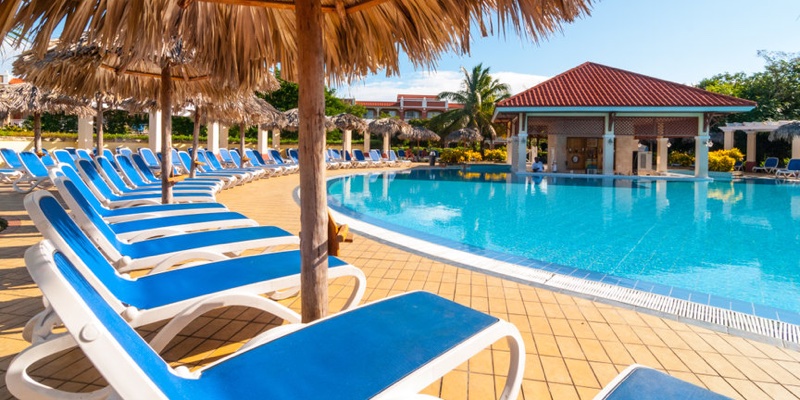Whether at seaside resorts or boutique hotels, Fluence has water sustainability solutions that make sense in an age of water instability.
A thoughtful water management plan that includes water reuse can save hotels and resorts a great deal of water
With rising water costs and unpredictable water supplies, hotels are searching for ways to add resilience to their water management. Hotels typically use a lot more water than the local population. A hotel’s average water use can climb as high as 1,500 L/d for each room – eight times the typical per-capita water usage in some water-stressed locations.
Even modern water grids are at risk of running out of water. For example, in Cape Town, South Africa, the Day Zero water crisis in 2018 caused an estimated $65 million shortfall for the region’s hospitality industry.
Some seaside hotels are installing on-site desalination to bring in more potable water. But there are also many ways to reduce water use at hotels.
Here are some ideas:
- Install low-flow fixtures in bathrooms.
- Fix plumbing leaks.
- Ask guests to use laundry service thoughtfully.
- Recycle water by installing on-site wastewater treatment to transform wastewater into useful water for irrigating the landscape and more.
Water Reuse Turns Wastewater Into Savings
When properly treated, hotel wastewater is safe for nonpotable reuse in a number applications, including landscaping irrigation (an average of 10% of hotel water use), golf course irrigation, dust reduction, pavement washing, shuttle washing, and HVAC cooling tower makeup water (an average of 15% of hotel water use).
20% of hotel water use can be attributed to hotel laundry. A number of technologies, including biological treatment and reverse osmosis (RO), can be used to treat laundry wastewater so it can be reused. The Hilton Americas-Houston, for instance, installed a water-recycling system that saved an estimated $500,000 after two years, even after accounting for the cost of the system.
Washings from swimming pool systems, which are usually discharged to sewer systems, can also be treated and reused on-site.
Many large facilities, like stadiums and schools, are lowering their water bills by harvesting, treating, and reusing rainwater from roofs, grounds, and parking lots. One Hyatt is using filtered stormwater exclusively from its roofs to supply a third of its HVAC cooling tower water needs.
Aspiral™, a Compact Water Reuse Solution
Fluence’s Aspiral™ modular wastewater treatment plants are ideal for hotels and resorts. Because the plants use MABR technology, they’re energy-efficient and highly effective at cleaning the water so it can be reused. Packaged in standard shipping containers, the plants are compact, quick to set up, and don’t disturb the hotel aesthetic (very low odor and noise). Aspiral™ plants are remotely operated and require little to no maintenance.
Desalination as an Efficient Option
Where fresh water is hard to source but seawater abounds, a new generation of highly efficient desalination technology has stepped in as a viable option – Fluence’s NIROBOX™ line of modular water treatment. For instance, at the luxury Reserva Conchal resort in Costa Rica, a NIROBOX™ seawater desalination plant provides fresh water for all of the resort’s pools, rooms, restaurants, and other facilities. Also packaged in shipping containers, the compact desalination plant operates near the hotel without harming the resort’s ambiance.
Water Management Services
Fluence’s offerings aren’t limited to solutions Aspiral™ and NIROBOX™ plants — the company also offers financing packages that give hotels the option of paying for water as a service. With our Water Management Services, our experts build, own, and operate on-site desalination or wastewater treatment plants and the customer simply pays for the resulting water. This option can save you time and effort, in addition to water and money!
In 2018, Rav Bahamas Limited chose this “BOOT” option for a desalination plant at its Resorts World property on North Bimini in the Bahamas. The plant, based on three NIROBOX™ containerized units, was designed to supply 800,000 GPD (3 million L/d) of fresh water for Resorts World as well as surrounding communities.
In an age of water stress and climate change, it pays to add resilience and reduce water risks early. It’s good for hotels, the environment, guests, and important relationships with surrounding communities. Contact the experts at Fluence to discuss how much water (and money) your hotel can save.

